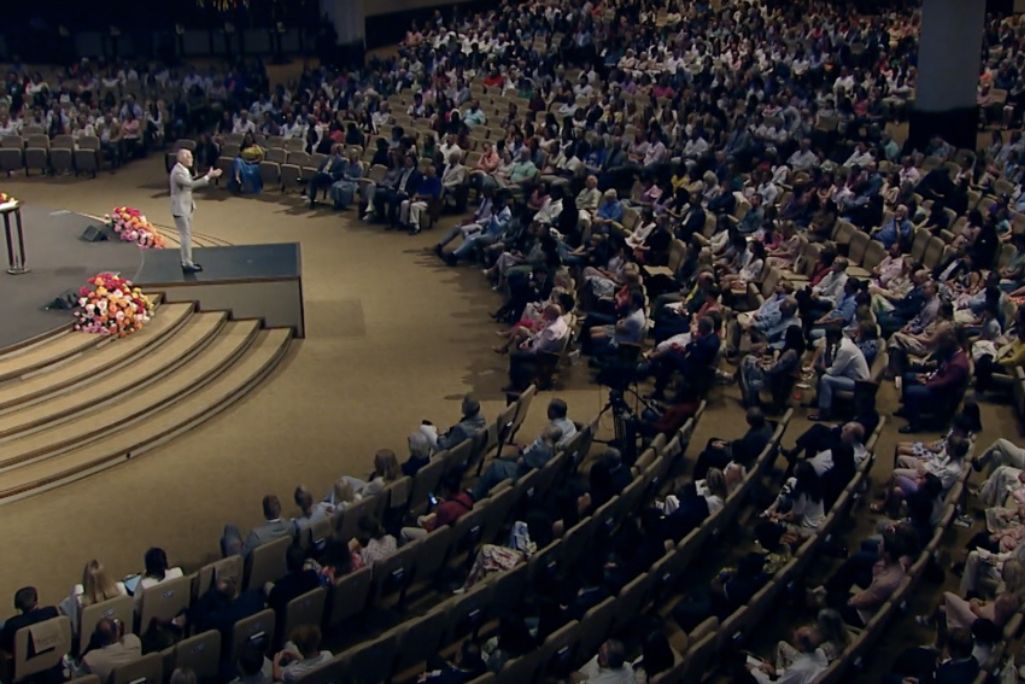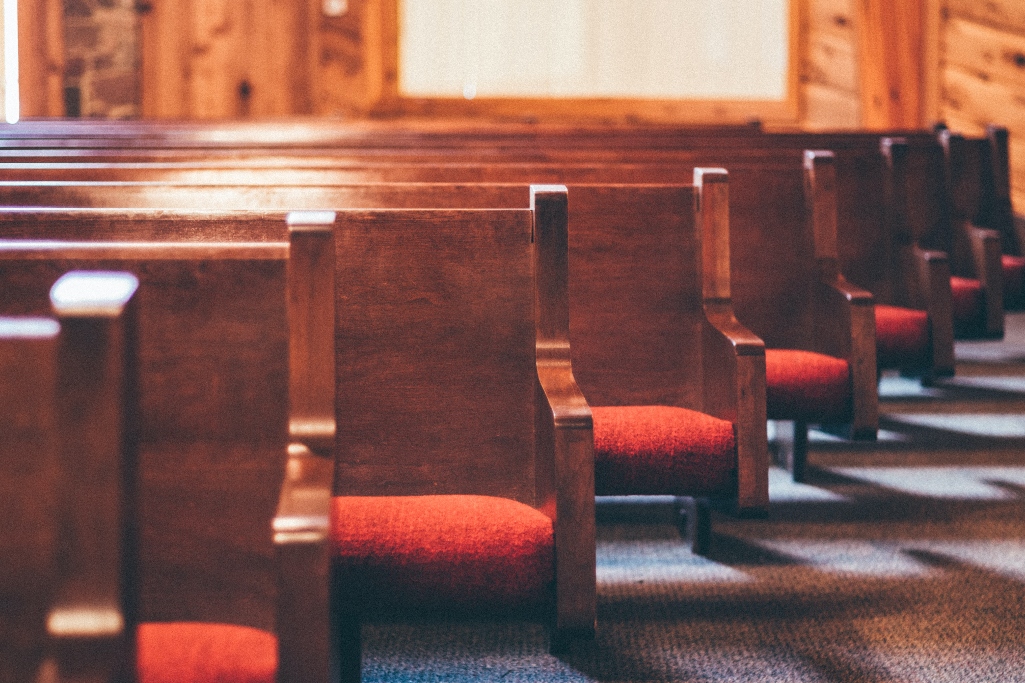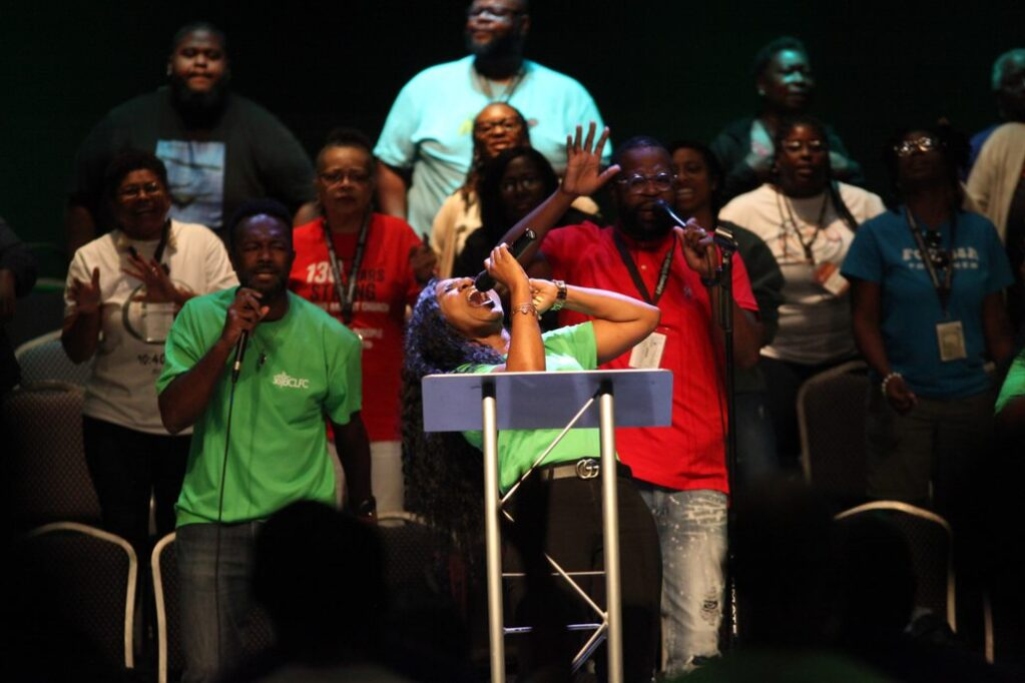
Second Baptist Houston service April 20.
HOUSTON (BP) — A lawsuit alleges Second Baptist Church in Houston unlawfully changed its governing documents to eliminate the congregation’s power to vote on virtually everything, including budgets and the selection of a senior pastor.
One reason for changing the church’s bylaws and articles of incorporation, the suit claims, was “to secure the ascendance” of Ben Young, son of longtime pastor Ed Young, to the senior pastorate. Ed Young is a former Southern Baptist Convention (SBC) president, and Second Baptist is among the convention’s largest cooperating churches with more than 90,000 members across six campuses.
“The represented and ostensible purpose for these amendments was to clarify the church’s beliefs, and to reinforce its stance on social issues such as marriage and family, in response to the ‘woke agenda,’” states the suit, filed last month in a Harris County, Texas, court by a group of current and former church members known as the Jeremiah Counsel Corporation. “However, the true objective for the amendments was to radically alter Second Baptist’s long-observed democratic governance processes – and to eliminate the congregants’ voice in church matters in its entirety.”
Second Baptist sent the following statement to Baptist Press (BP): “Our leadership and legal team are aware of the lawsuit and will respond appropriately.”
The case aligns with a trend of congregationally-governed churches in various denominations “contemplating – and in many cases adopting through revised bylaws – structures that consolidate the decision-making power to fewer individuals, such as a group of elders or the board of directors,” according to an article by Erika Cole, a Washington-area attorney specializing in churches and faith-based organizations. Shifting governance structures has led to “a corresponding increase in litigation,” she wrote for the website Church Law & Tax.
Among Southern Baptists, any move away from congregational church government could stir a discussion of biblical church polity. The SBC’s confession of faith, The Baptist Faith and Message, states in Article VI, “Each congregation operates under the Lordship of Christ through democratic processes.”
The suit against Second Baptist concedes that a vote was taken in May 2023 on the new bylaws. But it claims proper procedures were not followed leading up to the vote and that notice of the meeting where the vote occurred was “legally insufficient.”
Church committees did not conduct required reviews of the then-proposed bylaws before the vote, according to the suit, and “the purported notices advising recipients of the May 31 meeting were intentionally misleading by omitting material facts about the impact these radical changes would have on church governance.”
The lawsuit further alleges that notices of the meeting “were also deceptive in that they were intended to minimize the number of members who would become aware of the meeting.” Most of the approximately 200 people attending the meeting allegedly “were never provided a copy of the proposed Amended Bylaws or the proposed Amendments to the Articles of Incorporation.”
At the meeting, attendees were told “that the purpose of the ‘updates’” was “not to effect any change in governance of the church,” the suit claims.
Second Baptist’s former bylaws called for church votes on various matters, including adoption of an annual budget and selection of a senior pastor. Those and other decisions now are made by a Ministry Leadership Team comprising “the Senior Pastor, and those individuals appointed by the Senior Pastor,” the new bylaws state, adding, “Members are not entitled to vote in person, by proxy or otherwise.”
The changes were driven, the suit alleges, by church leaders’ “dual motives of controlling Pastor succession and seizing control of church finances.”
The suit asks a court to declare that the church must revert to the previous bylaws.
Cole told Baptist Press that governance structures and leadership succession “comes up quite a bit” in legal cases and likely will arise increasingly in years to come.
“We know that the leadership of the church is an aging population,” she said. “There are fewer people going into ministry and more church leaders reaching a traditional retirement age. I expect that areas and challenges around succession will continue to increase.”
When changing governance structures, Cole said, churches should exercise caution and transparency. Rules for amendments stated in previous bylaws are not the only relevant standards for bylaw changes, she said. State laws, IRS requirements and state and federal case law may dictate that some types of bylaw changes are impermissible.
Though courts tend not to adjudicate spiritual or theological conflicts, they may rule against churches when bylaw changes are unlawful, Cole said. “We have many cases to point to showing courts may interpret whether the bylaws have been properly followed.”
The legal name of the case involving Second Baptist is Jeremiah Counsel Corporation v. Ben Young, Homer Edwin Young, et al.
(EDITOR’S NOTE — David Roach is a writer in Mobile, Ala. This story was updated to include a statement from Second Baptist Church.)


